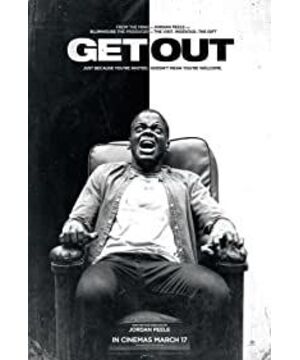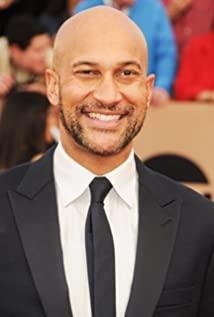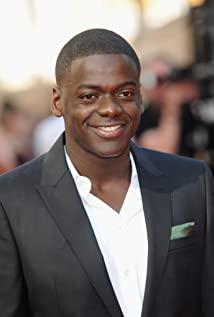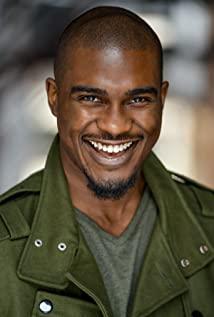[There are key spoilers in this article; however, if you read the spoilers, they may help you pay attention to the details in the film, and the director himself said so; in addition, some of the points in this article can be confirmed in the director’s public interviews]
The film's director is Jordan Peele from the well-known Key & Peele combination. If you have an understanding of Key & Peele's past comedy clips, you will not have any doubts about Peele's ability to control cross-racial themes. Both Key and Peele are half-and-white and speak plain English (Peele once mentioned in an NPR interview that he was often questioned when he was young because of his "white" accent). Because they have constantly switched code-switches in different cultures since they were young, they have a persistent passion for drama performance (because acting allows them to play any role with any accent in a fair way). And their past comedies were also full of analysis of American racial issues, sometimes mocking whites' inexplicable fear of blacks, and sometimes mocking the ridiculous elements of black culture.
After reading Get Out, you have to admire Jordan Peele (hereinafter referred to as JP) for his right grip on the racial issues in contemporary American society. In the first half of the film, JP skillfully used the audience's stereotypes about race issues and race-themed movies, and cleverly constructed a seemingly clumsy story about the "suburban 3K party community using psychological hypnosis to domesticate black slaves" (but even if This story is written like this, I can also give him 80 points); and the film went to 3/4 of the film, the style of painting changed, the audience then realized that this film is not about the story of white racial supremacy domesticating black slaves. , But a post-racist story of conquering the black body.
I believe that many Chinese audiences will have a kind of "You are politically correct. Do you think this is a nigger movie and got slapped in the face?" Seeing that these whites are not racists at all, they don't think blacks are inferior at all, they think blacks are strong, so they have to change their minds.] The illusion. If you think so, then you don't get to the most important point of this kind of movie at all. In other words, what this movie alludes to and criticizes is exactly this kind of post-racist viewpoint.
What is the "Post-racial era"? This refers to the overly optimistic judgment of some contemporary American people on race relations, and that racism has become a thing of the past (so called the "post-racism era"). In the past (the so-called era of racism), racism against blacks meant restrictions on blacks’ personal freedom and open discrimination against blacks. In contemporary American society, especially after Obama was elected president, American society is permeated with an illusion that "we have resolved all racial issues, discrimination against blacks is no longer a problem, and blacks are equal to whites." The social rebellion against the so-called "political correctness" is also based on the idea: "Black people can become presidents, why are you still struggling with racial issues?" However, many ethnic minorities are not. Buy it and point out that racial discrimination clearly still exists based on your own life experience. Some people are just hiding their ears and stealing bells. They deny that the United States has entered the "post-racism" era-this is exactly what JP wants to express in this film. A worry about social racial issues : As a black man in this era, you always have to speculate: whether others are polite on the surface but discriminate against me behind their backs, or am I okay to find things too sensitive? And the protagonist of the film is in this panic all the time. Regardless of what contemporary white people think, if a black man who understands Chinese reads the various negative descriptions of black people in the Chinese online community and the media, I am afraid he will start to have an inexplicable panic towards every Asian on the street. (The existence of Asian old men in the white community in this film actually originated from JP's observation of some Asians who call themselves "Honorary Whites."). The real scary point of this film is precisely this uncertainty. The movie is scary because you can't always guess whether it is a horror movie or a race movie. After understanding this, you can understand why this film was praised by major film critics as a breakthrough original film.
So in contrast to the perverted white (and an Asian) community in this film, does their yearning for black bodies mean that they really have no tendency to racism? On the contrary, if you listen carefully to what the grandpa (if I’m not mistaken, this grandpa is a black man who chops wood and runs at night) in the brainwashing video But what the perfect world needs is not their brains. White people can use the black body to continue their lives, and the black brain can only become a spectator. Only by understanding this can we understand the message of the "post-ethnic era" that the film wants to convey. At the end of the film, this layer of information was not completely broken, and it was not clearly stated whether this abnormal community only collected black bodies, which further deepened the anxiety brought about by the uncertainty mentioned above.
JP did not forget to tease the audience at the end of the film. The moment the police lights were on, the audience was "Oh shit", and even many audiences had a premonition when Chris pinched Rose. This is exactly what JP has grasped at the racial issues. Good proof.
(JP revealed in a recent interview that in fact, the ending they designed was that Chris was arrested by the police, but at the time of the filming, the issue of police violence had already been extensively discussed across the country, so they felt that they should rewrite a hopeful one. ending)
[A small part of this article has been edited after publication]
Postscript :
Yesterday, at the checkout in the Chinese supermarket, a black aunt in front of me asked the cashier (Chinese) angrily: "Why did you put the change for him (that is, me) in his hand, and put the change for me? On the counter?" The cashier apologized immediately after he understood it-in fact, it is because there are so many subtle examples in life that make black people full of distrust of the social environment
Chinese in the United States, when it comes to discrimination against Chinese, there is basically nothing to say except Harvard University admissions, Peter Liang, a black rapper, and so on. And just ask a black friend about the discrimination he has suffered. He will tell you about the discrimination he has suffered in different places such as supermarkets, restaurants, workplaces, schools, banks, etc., saying that he will not stop for three days and three nights.
View more about Get Out reviews











